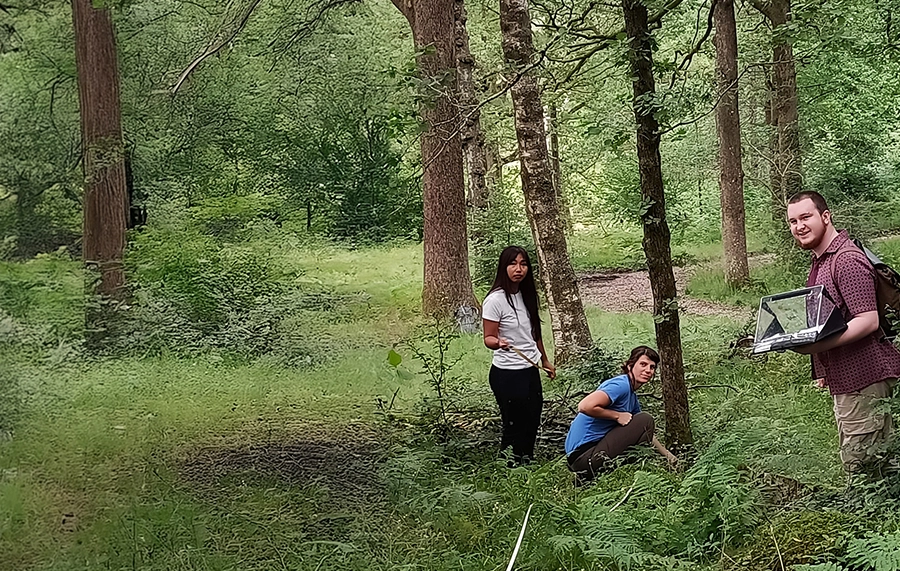BSc (Hons) - Forest Management with Integrated Foundation Year
Are you driven to shape and save the future of our environment and tackle important critical issues? Learn from world-leading experts how to work with nature, not against it, on our forest management course.

Course Overview
On this degree, you’ll study the management of woodlands and forests for commercial, recreation, and conservation. Your course will include modules on silviculture, woodland ecology, forest health, and forest management planning. Practical hands-on experience backs up theory and there will be opportunities to study in a wide range of forest environments, from ancient semi-natural woodland to plantations. In addition, you will have the opportunity to take a one-year work placement in a related profession, bolstering your confidence and putting your knowledge into practice in the real world. You’ll be well placed for a career as a professional forest manager both at home and overseas.
Your foundation year will be spent developing your base knowledge and wider understanding of forestry and conservation at Carlisle. After this you will join us at the National School of Forestry in Ambleside.
On this course you will...
- Have easy access to local woodlands giving you the chance to explore different forest types and the ecosystems they support.
- Be taught by tutors who have worked as professional foresters and researchers who bring their first-hand experience and knowledge to their teaching.
- Experience hands-on forestry frequently, thanks to our practical-focused approach.
- Benefit from the links the National School of Forestry has with industry, with placement opportunities and a variety of field visits throughout the UK.
Location
Ambleside Campus
Nestled in the Lake District National Park, a UNESCO World Heritage site, the Ambleside campus is the perfect place for world-savers, animal lovers, and adventurers. There is never a dull moment when surrounded by such natural beauty and opportunity.
Find out moreLocation
Carlisle - Fusehill Street Campus
The Fusehill Street campus has been the setting of life-saving treatments since World War I. Now, it's home to world changers, life-savers, crime fighters, and entrepreneurs with access to high-quality facilities and innovative thinking.
Find out more
Find out more about studying with us
Attend an Open Day at Cumbria
An Open Day is your opportunity to explore one of 5 campuses, meet your lecturers, and find out how the University of Cumbria could become your new home.






